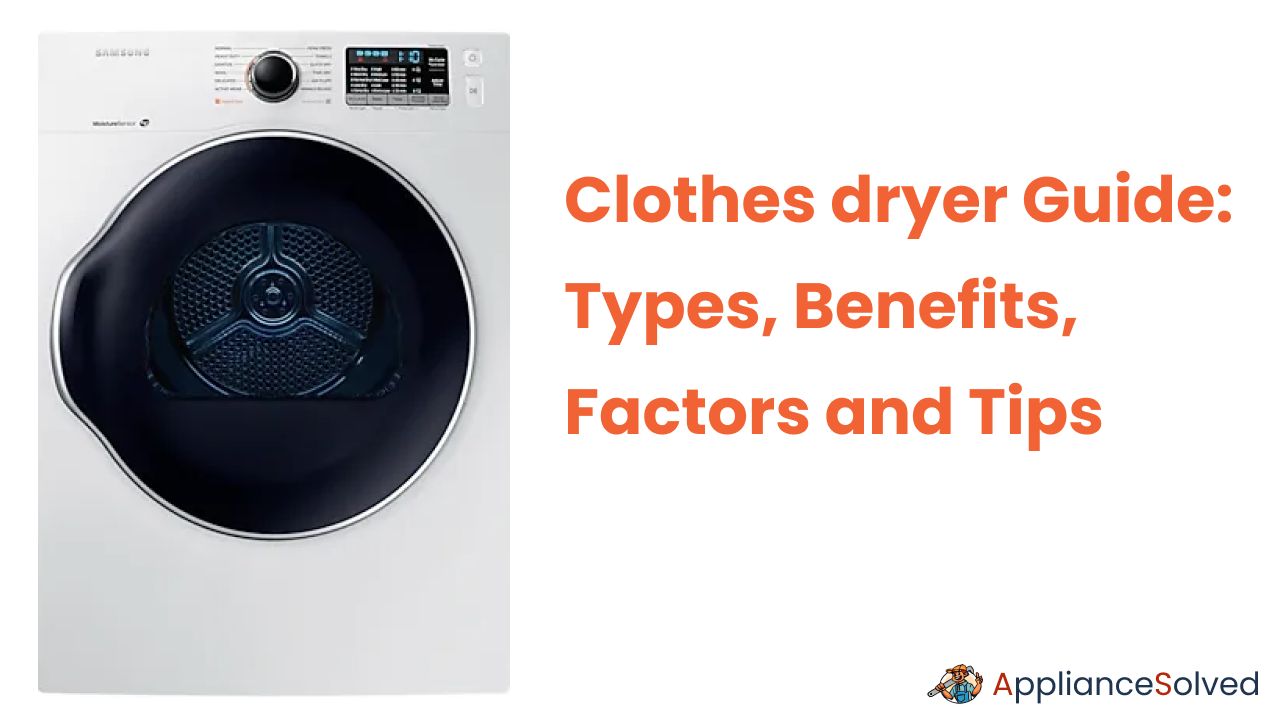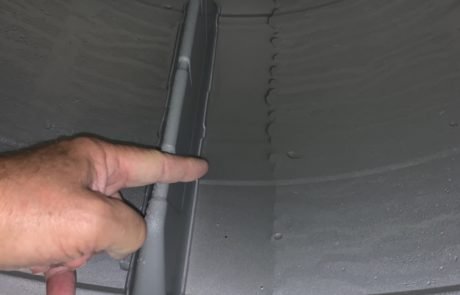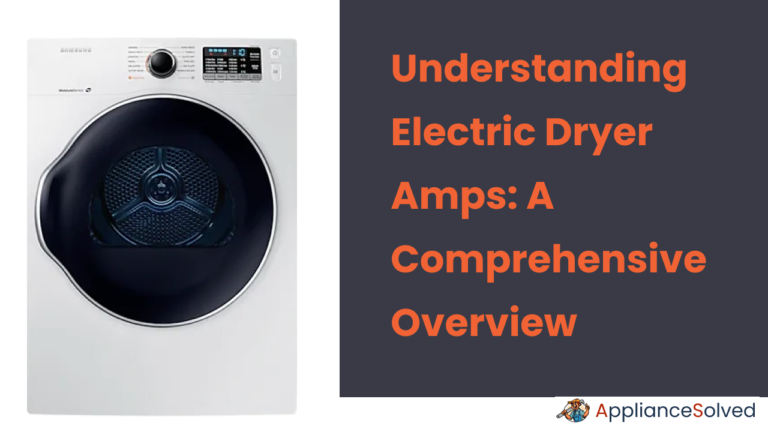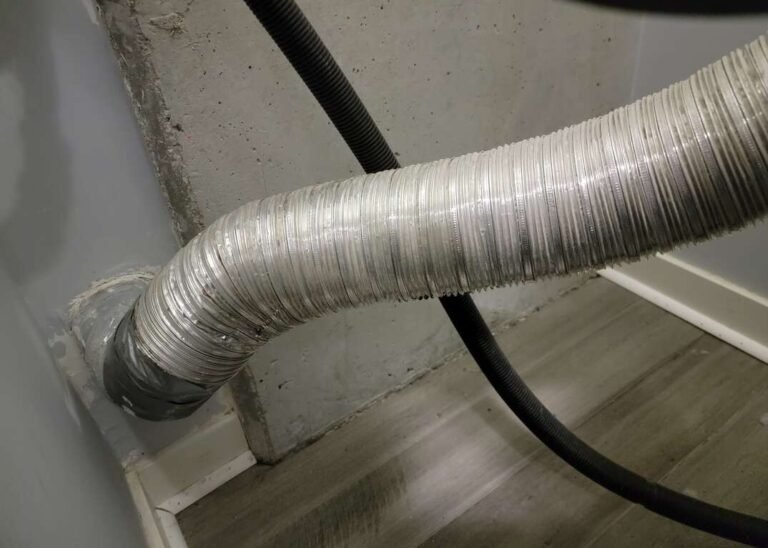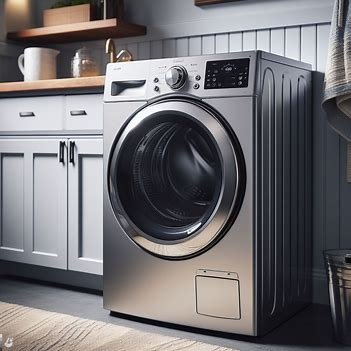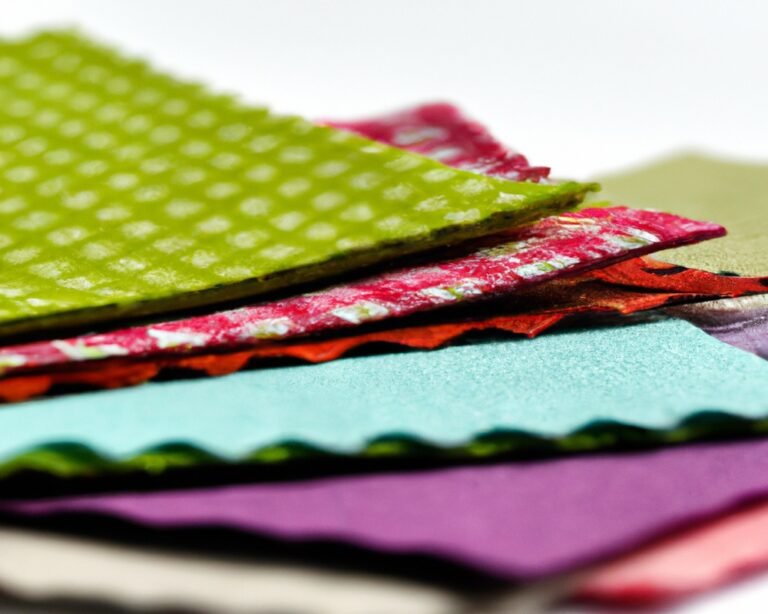Clothes dryer Guide: Types, Benefits, Factors and Tips
Clothes dryers have become an indispensable appliance in modern households, revolutionizing the way we do laundry. These remarkable machines offer a convenient and efficient solution for drying clothes, saving us time and effort while ensuring that our garments are ready to wear promptly.
Gone are the days of relying solely on outdoor clotheslines or waiting for clothes to air-dry indoors. With clothes dryers, the drying process is expedited, allowing us especially Appliance Solved to have dry, fresh-smelling laundry within a fraction of the time it would take otherwise. Whether it’s a chilly winter day or a rainy afternoon, clothes dryers provide a dependable and accessible option for drying our clothes regardless of the weather conditions.
How Clothes Dryers Work?
Clothes dryers work on a straightforward principle of tumbling clothes in a heated drum. The heated air is circulated through the drum, effectively evaporating the moisture from the clothes. This moisture-laden air is then expelled outside through a vent or collected in a condenser unit in ventless dryers. As a result, clothes come out dry and ready to wear.
What are The Advantages of Using Clothes Dryers?
The advantages of using clothes dryers are manifold. Firstly, they save a significant amount of time compared to traditional air-drying methods. What might have taken hours or even days can now be accomplished within a single drying cycle. This time-saving aspect is particularly valuable for busy households, working professionals, and those with large families.
Secondly, clothes dryers offer convenience and flexibility. Whether you need to dry a delicate silk blouse or a load of towels, modern dryers come with a range of settings and drying programs to accommodate different fabrics and laundry sizes. Many dryers also have sensor technology that detects the moisture level in the clothes, automatically adjusting the drying time to prevent over-drying and save energy.
Lastly, clothes dryers contribute to maintaining a clutter-free living space. With no need for hanging laundry on lines or using drying racks, the laundry area remains tidy and organized. This is especially beneficial for those living in apartments or homes with limited outdoor space.
In conclusion, clothes dryers have revolutionized the way we approach laundry, providing us with an efficient, time-saving, and convenient method to dry our clothes. With their modern features and functionalities, clothes dryers have become an essential appliance for households worldwide, making laundry chores a breeze and ensuring that we always have fresh, dry clothes at our disposal.
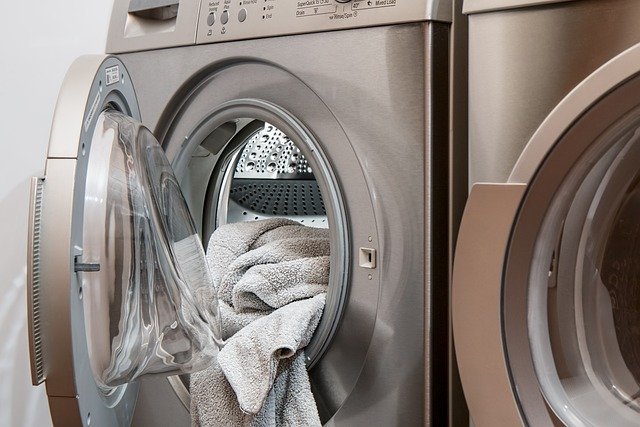
What are the Types of Clothes Dryers?
When it comes to clothes dryers, there are several types available in the market, each offering unique features and functionalities to cater to diverse user needs. Understanding the different types of clothes dryers can help you make an informed decision based on your preferences, living situation, and laundry requirements.
1. Vented Clothes Dryers

Vented dryers are the most common and traditional type of clothes dryers. These machines use a heating element to warm the air, which is then blown into the drum to dry the clothes. The moist air is expelled from the dryer through a vent that typically leads outside your home. Vented dryers are highly efficient and tend to have a shorter drying time compared to other types. However, they require proper ventilation and a nearby external vent, which may not be suitable for all living arrangements.
2. Ventless Clothes Dryers
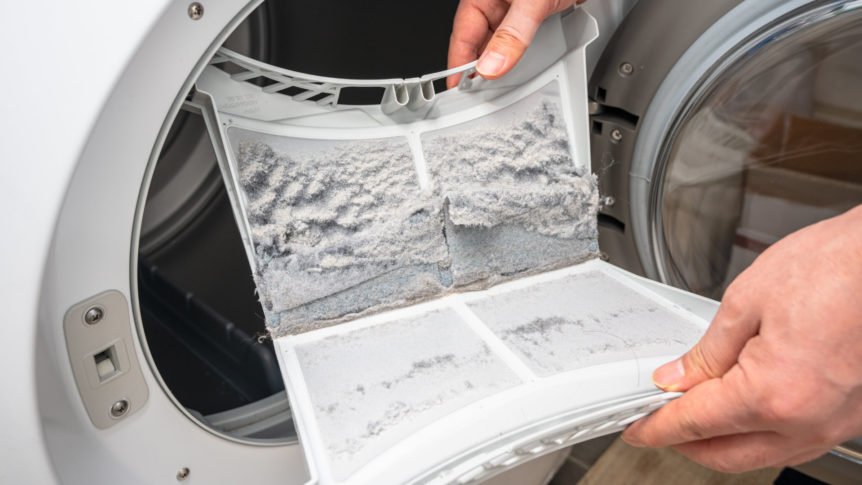
Ventless dryers, also known as condenser dryers, offer a space-saving and versatile alternative to vented dryers. These dryers use a heat exchanger to cool down the hot, moist air from the drum, turning it into water, which is then collected in a reservoir or drained out through a hose. The dry, cool air is recirculated back into the drum for further use. Ventless dryers eliminate the need for an external vent, making them ideal for apartments, small spaces, or areas where vent installation is impractical. However, they may take slightly longer to dry clothes compared to vented dryers.
3. Heat Pump Dryers
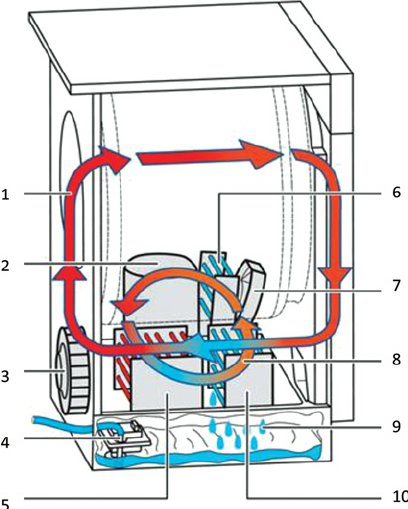
Heat pump dryers are a more recent innovation in clothes drying technology. They operate similarly to ventless dryers but employ a highly energy-efficient heat pump system to dry clothes. Instead of using a heating element, heat pump dryers extract heat from the surrounding air and use it to evaporate the moisture in the clothes. This process consumes less energy, making heat pump dryers an environmentally friendly and cost-effective option. Although they may have a higher upfront cost, the energy savings over time can offset the initial investment.
4. Spin Dryers
Spin dryers are a compact and portable solution for drying clothes. Unlike traditional dryers, they do not use heat. Instead, they spin clothes rapidly to remove excess water. Spin dryers are particularly useful for delicate fabrics that cannot withstand the heat of conventional dryers. They are also beneficial for camping trips, RV living, or small households with minimal laundry needs. However, spin dryers are not a replacement for regular dryers, as they do not completely dry clothes and may leave them slightly damp.
In conclusion, the different types of clothes dryers cater to varying lifestyles, living spaces, and preferences. Vented dryers offer efficiency but require proper ventilation, ventless dryers provide versatility and save space, heat pump dryers are energy-efficient, and spin dryers serve as a portable and gentle drying option. Considering your specific needs and circumstances will help you choose the most suitable clothes dryer to simplify and enhance your laundry experience.
5. Electric dryers
Electric clothes dryers are a popular and convenient household appliance used to dry wet laundry quickly and efficiently. They offer a reliable alternative to traditional air-drying methods, making the task of doing laundry more convenient and time-saving for households worldwide. Electric dryers operate on electricity and use a heating element to generate warm air that is blown into the drum, where it dries the clothes.
6. Gas dryers
Gas dryers are a type of clothes dryer that operates on natural gas or propane as a source of heat, making them an alternative to electric dryers. These appliances are commonly found in households where gas connections are available, providing efficient and cost-effective drying solutions. Gas dryers work similarly to electric dryers but use a gas burner to generate heat instead of an electric heating element.
What are the Benefits of Using a Clothes Dryer?
Using a clothes dryer in your laundry routine offers numerous benefits that go beyond simple convenience. This essential household appliance streamlines the drying process and provides several advantages for busy individuals and families alike. Let’s explore the key benefits of incorporating a clothes dryer into your daily laundry routine.
Time-Saving Convenience
One of the most significant advantages of using a clothes dryer is the time-saving convenience it provides. Unlike traditional air-drying methods, which can take hours or even days to complete, a clothes dryer can dry a full load of laundry in a matter of minutes. This rapid drying speed is especially advantageous for individuals with hectic schedules, families with children, or those who need clean, dry clothes quickly for work or other commitments. With a clothes dryer, you no longer need to wait for the sun to shine or worry about unpredictable weather conditions that could delay the drying process.
Effortless Drying Process
Gone are the days of hanging clothes on lines or using drying racks throughout your living space. A clothes dryer offers an effortless and hassle-free drying process. Simply load your wet laundry into the dryer, select the appropriate settings, and let the machine do the work. This ease of use not only saves physical effort but also reduces the time you spend tending to your laundry, allowing you to focus on other important tasks and activities.
Fabric Care and Wrinkle Reduction
Clothes dryers today come with various settings designed to cater to different fabric types. These settings ensure that your garments are dried at the right temperature and with gentle tumbling, minimizing the risk of damage or shrinkage. Additionally, some dryers have anti-wrinkle or steam functions that help reduce wrinkles and creases in your clothes, saving you time and effort on ironing. This fabric care aspect is especially beneficial for delicate fabrics, such as silk, wool, and cashmere, which require gentle handling to maintain their quality and longevity.
All-Season Drying Solution
A clothes dryer offers an all-season drying solution, allowing you to do laundry regardless of the weather conditions outside. Whether it’s pouring rain, freezing cold, or scorching hot, a clothes dryer provides a consistent and reliable method to dry your clothes indoors. This is particularly advantageous for those living in regions with extreme weather, where outdoor drying may not be feasible or practical year-round.
Versatile Drying Options
Modern clothes dryers come equipped with various drying programs and features to suit different laundry needs. From quick-drying cycles for lightly soiled clothes to energy-saving options for smaller loads, clothes dryers offer versatility and flexibility in drying your laundry. Some models even have smart technology that detects moisture levels and adjusts the drying time accordingly, further enhancing energy efficiency and ensuring optimal drying results.
In conclusion, using a clothes dryer presents a host of benefits that make it an indispensable appliance in modern households. The time-saving convenience, effortless drying process, fabric care features, all-season usability, and versatile drying options contribute to a more efficient and enjoyable laundry experience. Whether you have a busy schedule, large family, or specific fabric care requirements, a clothes dryer can significantly simplify your laundry routine and provide you with dry, fresh-smelling clothes whenever you need them.
What are the Factors to Consider When Buying a Clothes Dryer?
Purchasing a clothes dryer is a significant investment, and it’s essential to choose the right one that suits your specific needs and preferences. With a wide range of models and features available in the market, it can be overwhelming to make a decision. To help you make an informed choice, consider the following factors when buying a clothes dryer:
1. Dryer Capacity
The dryer capacity refers to the amount of laundry the machine can handle in a single load. It’s crucial to choose a dryer with a capacity that aligns with your household’s laundry needs. A larger capacity dryer is ideal for families or those with significant laundry loads, as it allows you to dry more clothes at once, saving time and energy. However, if you have limited laundry needs or live in a small space, a compact dryer with a smaller capacity might be more suitable.
2. Drying Programs and Settings
Modern clothes dryers come with a variety of drying programs and settings tailored to different fabric types and drying requirements. Look for a dryer with a range of options, including delicate, normal, heavy-duty, and energy-saving cycles. Some dryers also offer specialized programs for specific items like towels, bedding, or sportswear. Having these diverse options ensures that you can dry your clothes efficiently while maintaining their quality.
3. Energy Efficiency
Energy efficiency is a crucial factor to consider when buying any home appliance, including clothes dryers. Look for dryers with high energy star ratings or energy-efficient technologies like heat pumps. Energy-efficient dryers not only help reduce your utility bills but also contribute to a greener environment by minimizing energy consumption.
4. Venting Options
If you opt for a vented dryer, ensure that your laundry area has proper ventilation and an accessible external vent to expel the moist air outside. On the other hand, if you choose a ventless dryer, you won’t need an external vent, making it a suitable option for apartments or spaces where vent installation is challenging.
5. Noise Level
Consider the noise level of the dryer, especially if your laundry area is close to living spaces or bedrooms. Some dryers come with noise reduction technologies or insulated cabinets to keep operational sounds to a minimum, ensuring a quieter drying experience.
6. Budget and Brand Reputation
Set a budget for your clothes dryer purchase and explore models within that range. While it’s essential to find a cost-effective option, don’t compromise on quality and features. Research reputable brands known for their reliable appliances and read customer reviews to gauge the performance and durability of the dryer you’re considering.
7. Additional Features
Some clothes dryers offer extra features like steam functions for refreshing clothes or removing wrinkles, smart technology for remote control and monitoring, or moisture sensors to prevent over-drying. Assess which additional features align with your preferences and daily laundry needs.
In conclusion, buying a clothes dryer requires careful consideration of various factors to ensure you find the best fit for your household. Evaluating the dryer’s capacity, drying programs, energy efficiency, venting options, noise level, budget, brand reputation, and additional features will guide you in making a well-informed decision. By choosing the right clothes dryer, you can enjoy efficient and effective laundry drying, making your daily chores more manageable and enjoyable.
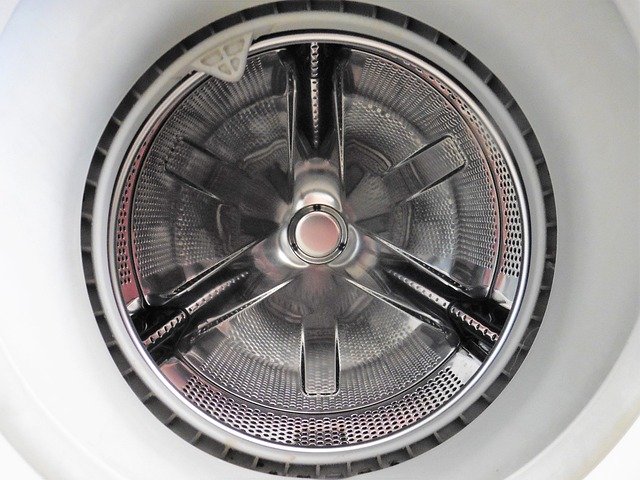
What are the Tips for Properly Using and Maintaining Your Clothes Dryer?
Proper usage and maintenance of your clothes dryer are essential not only to ensure efficient drying performance but also to extend the appliance’s lifespan and enhance safety. By following these tips, you can maximize the benefits of your clothes dryer and keep it running smoothly for years to come:
1. Clean the Lint Filter Regularly
After every drying cycle, clean the lint filter by removing the accumulated lint and debris. A clogged lint filter can hinder airflow, leading to longer drying times and potentially causing the dryer to overheat. Regular cleaning of the lint filter not only improves drying efficiency but also reduces the risk of fire hazards associated with lint buildup.
2. Check and Clean the Ventilation System
If you have a vented dryer, ensure that the ventilation system is clear of lint and debris. Over time, lint can accumulate in the vent hose or the wall duct, obstructing airflow. This not only hampers drying performance but also poses a fire hazard. Schedule regular inspections and cleanings of the ventilation system to maintain optimal airflow and safety.
3. Avoid Overloading the Dryer
While it may be tempting to load the dryer to its maximum capacity to save time, overloading can lead to inefficient drying and added wear on the machine. Clothes need space to tumble and dry evenly. Follow the manufacturer’s guidelines for load capacity and avoid cramming too many clothes into the drum.
4. Use Fabric-Specific Drying Settings
Take advantage of the various drying programs and settings to cater to different fabric types. Delicate fabrics require gentler drying with lower heat, while towels and heavy garments may need higher heat settings. Using the appropriate settings ensures that your clothes are dried efficiently without risking damage.
5. Clean the Dryer Drum and Exterior
Periodically clean the interior of the dryer drum with a damp cloth to remove any lint or residue that may have accumulated. Additionally, wipe down the exterior of the dryer to keep it free from dust and dirt.
6. Inspect and Replace Dryer Parts as Needed
Regularly inspect the dryer’s components, such as the drum belt, rollers, and seals, for signs of wear or damage. If you notice any issues, have the parts replaced promptly to prevent further damage to the appliance.
7. Ventless Dryers
Empty the Water Reservoir
If you own a ventless or condenser dryer, remember to empty the water reservoir after each use. The water collected during the drying process needs to be disposed of to maintain efficient drying performance.
8. Professional Maintenance
Consider scheduling professional maintenance for your clothes dryer at least once a year. Trained technicians can inspect the dryer thoroughly, perform any necessary repairs, and optimize its performance.
Proper usage and maintenance of your clothes dryer are essential to ensure optimal drying efficiency, safety, and longevity. By incorporating these tips into your laundry routine, you can enjoy the full benefits of your clothes dryer while minimizing the risk of issues and maximizing its lifespan. A well-maintained dryer not only saves you time and energy but also provides peace of mind as you go about your daily laundry tasks.
Energy-Efficient Clothes Dryers: A Sustainable Option
In an era where sustainability and environmental consciousness are becoming increasingly important, energy-efficient clothes dryers have emerged as a practical and eco-friendly solution for households worldwide. These innovative appliances not only offer efficient drying performance but also significantly reduce energy consumption, making them a smart choice for both environmentally conscious consumers and budget-conscious individuals. Let’s explore the key features and benefits of energy-efficient clothes dryers:
1. Heat Pump Technology
One of the primary features that set energy-efficient dryers apart is the use of heat pump technology. Unlike conventional dryers that use a heating element to generate hot air, heat pump dryers extract heat from the surrounding air and use it to dry the clothes. This process is significantly more energy-efficient, as it consumes less electricity to achieve the same drying results.
2. Energy Star Certification

Energy-efficient clothes dryers are often certified by programs such as Energy Star, which indicates that they meet stringent energy efficiency guidelines set by the Environmental Protection Agency (EPA). Energy Star-certified dryers use approximately 20% less energy than non-certified models, helping households save on utility bills while reducing their carbon footprint.
3. Moisture Sensors and Auto Shut-Off
Many energy-efficient dryers are equipped with moisture sensors that detect when the clothes are dry. Once the desired level of dryness is reached, the dryer automatically shuts off, preventing over-drying and unnecessary energy consumption. This feature ensures that the dryer operates only as long as needed, further enhancing energy efficiency.
4. Eco-Friendly Refrigerants
Energy-efficient dryers often use eco-friendly refrigerants, which have a lower impact on the environment compared to traditional refrigerants. These refrigerants contribute to reducing greenhouse gas emissions, making the dryers more environmentally friendly.
5. Long-Term Cost Savings
Though energy-efficient clothes dryers may have a higher upfront cost than conventional models, the long-term cost savings in terms of reduced energy consumption can more than offset the initial investment. Over time, the lower energy bills can result in significant savings, making energy-efficient dryers a financially sensible choice.
6. Environmental Impact
By opting for an energy-efficient clothes dryer, you can actively contribute to reducing your household’s carbon footprint. The lower energy consumption not only helps conserve natural resources but also minimizes greenhouse gas emissions, which play a significant role in climate change.
7. Government Incentives
In some regions, governments offer incentives or rebates to encourage the adoption of energy-efficient appliances, including clothes dryers. These incentives can further reduce the cost of purchasing an energy-efficient model, making it an even more appealing choice.
Energy-efficient clothes dryers exemplify the fusion of modern technology and sustainability. With their heat pump technology, Energy Star certification, moisture sensors, and eco-friendly refrigerants, these dryers not only deliver efficient and effective drying performance but also contribute to a greener and more environmentally conscious lifestyle. By choosing an energy-efficient clothes dryer, you can play a part in conserving energy, reducing greenhouse gas emissions, and moving towards a more sustainable future.
Top Brands and Models of Clothes Dryers in the Market
When shopping for a clothes dryer, choosing a reliable and reputable brand can make a significant difference in the appliance’s performance, durability, and overall satisfaction. Several well-established manufacturers offer a wide range of high-quality clothes dryers, each with its unique features and capabilities. Let’s explore some of the top brands and models of clothes dryers available in the market:
1. Samsung
Samsung is renowned for its innovative and technologically advanced home appliances, including clothes dryers. Their dryers often feature cutting-edge technologies like heat pump drying, smart controls, and moisture sensors. Samsung dryers are known for their sleek design, energy efficiency, and excellent drying performance.
2. LG
LG is another leading brand that produces top-notch clothes dryers with a focus on energy efficiency and user convenience. Their dryers often come with steam functions for wrinkle reduction and sanitization, as well as advanced drying programs for various fabric types. LG dryers are praised for their reliability and quiet operation.
3. Whirlpool
Whirlpool offers a diverse range of clothes dryers, catering to different budgets and laundry needs. Their dryers are known for their straightforward design and dependable performance. Whirlpool dryers often come with a variety of drying programs and intuitive controls for easy operation.
4. Maytag
Maytag is synonymous with durability and ruggedness. Their clothes dryers are built to withstand heavy use and deliver consistent drying results. Maytag dryers often feature advanced moisture sensors and wrinkle-prevention options for added convenience.
5. Bosch
Bosch is renowned for its high-quality and energy-efficient appliances, and their clothes dryers are no exception. Bosch dryers are well-known for their quiet operation and space-saving design. Many models are equipped with heat pump technology and moisture sensors for optimal drying performance.
6. Electrolux
Electrolux offers a wide array of clothes dryers with advanced features and stylish designs. Their dryers often come with a reversible door option for flexible installation and a variety of drying cycles to accommodate different fabric types.
7. GE (General Electric)
GE manufactures a range of clothes dryers that blend efficiency and performance. Their dryers often come with intuitive controls and sensor drying technology, ensuring that clothes are dried precisely to the desired level.
8. Amana
Amana dryers are known for their affordability and reliability. They offer straightforward features and solid performance, making them a popular choice for those seeking a budget-friendly option without compromising on quality.
9. Kenmore
Kenmore, a brand by Sears, offers a variety of clothes dryers with multiple drying options and capacities. Kenmore dryers are designed to provide efficient drying while catering to various household needs.
10. Miele
Miele is known for its premium, high-end appliances, and their clothes dryers are no exception. Miele dryers offer advanced features, exceptional build quality, and superior performance, making them a favorite among those seeking luxury laundry appliances.
The market is teeming with reputable brands and models of clothes dryers, each offering unique features and advantages. When selecting a clothes dryer, consider factors such as energy efficiency, drying programs, capacity, and brand reputation. Reading customer reviews and seeking recommendations can also help in making an informed decision. Whether you prioritize innovation, reliability, budget-friendliness, or luxury, there is a clothes dryer to suit your specific requirements and enhance your laundry experience.
Troubleshooting Common Clothes Dryer Issues
While clothes dryers are incredibly useful appliances, they may encounter occasional issues that can hinder their optimal performance. Knowing how to troubleshoot common dryer problems can save you time and money on unnecessary repairs or replacements. Here are some common clothes dryer issues and troubleshooting tips:
1. Clothes Not Drying Properly
If you find that your clothes are still damp at the end of a drying cycle, the most likely cause is a clogged lint filter or vent. Clean the lint filter before every load, and check the vent hose and external vent for any obstructions. A restricted vent can hinder proper airflow, resulting in ineffective drying. Additionally, ensure that you’re not overloading the dryer, as this can also lead to uneven drying.
2. Dryer Not Heating
A dryer that isn’t producing heat can be due to several factors. Start by checking the power supply and ensuring that the dryer is plugged in and the circuit breaker is not tripped. If the power supply is fine, the heating element or thermal fuse might be faulty and need replacement. In gas dryers, check if the gas supply is connected and turned on.
3. Unusual Noises
If your dryer is making loud or strange noises, it could be a sign of worn-out drum rollers, worn drum glides, or a damaged belt. These components may need lubrication or replacement to eliminate the noise.
4. Dryer Overheating
An overheating dryer can be dangerous and may lead to fires. The most common cause is a blocked vent or vent hose, preventing proper heat dissipation. Regularly clean the vent system to prevent overheating and improve energy efficiency.
5. Dryer Not Starting
If your dryer doesn’t start when you press the power button, check the door switch. The dryer won’t start if the door switch is faulty or not engaging properly. Additionally, ensure that the dryer’s timer and control settings are correctly set.
6. Drum Not Spinning
A drum that doesn’t spin could be due to a broken belt or a faulty motor. Inspect the belt for signs of damage or wear, and replace it if necessary. If the belt is intact, the motor might need professional repair or replacement.
7. Burning Smell
If you detect a burning smell coming from your dryer, immediately turn it off and unplug it. A burning smell can indicate an overheating motor or lint buildup around the heating element. Have the dryer inspected and repaired by a qualified technician to prevent potential hazards.
8. Error Codes
Many modern dryers come equipped with error code displays. If you encounter an error code, refer to the user manual for troubleshooting instructions or contact the manufacturer’s customer support for assistance.
understanding how to troubleshoot common clothes dryer issues can save you time, money, and unnecessary frustration. Regular maintenance, such as cleaning the lint filter and vent, can prevent many problems and ensure your dryer operates efficiently and safely. For more complex issues or concerns, don’t hesitate to seek the expertise of a professional appliance repair technician to diagnose and resolve the problem accurately. By addressing dryer issues promptly, you can extend the lifespan of your appliance and enjoy continuous, reliable drying performance.
How to Choose the Right Capacity for Your Clothes Dryer
Selecting the appropriate capacity for your clothes dryer is essential to ensure efficient and effective drying performance that meets your household’s needs. A dryer with the right capacity not only saves energy but also prevents overloading, which can lead to uneven drying and potential damage to your clothes. Here are some factors to consider when choosing the right capacity for your clothes dryer:
1. Household Size
The size of your household is a crucial factor in determining the dryer capacity you need. For smaller households or individuals, a compact dryer with a lower capacity may be sufficient. However, larger households with more laundry to dry on a regular basis will benefit from a dryer with a larger capacity that can handle bigger loads.
2. Laundry Frequency
Consider how often you do laundry. If you do laundry frequently and have several loads to dry each week, a dryer with a larger capacity will be more practical and time-efficient. On the other hand, if you do laundry less often or have limited space, a dryer with a smaller capacity may be suitable.
3. Types of Clothes
Think about the types of clothes you typically wash and dry. Bulky items like comforters, blankets, and towels require more space, so a dryer with a larger capacity can accommodate them without overcrowding the drum. If you regularly dry delicate fabrics or small loads, a dryer with a smaller capacity may be more appropriate to prevent unnecessary energy consumption.
4. Available Space
Consider the available space in your laundry area. Measure the area where the dryer will be placed to ensure that it can accommodate the dimensions of the dryer with the desired capacity. Remember to account for any clearance required for proper ventilation and installation.
5. Energy Efficiency
Choosing a dryer with the appropriate capacity can contribute to energy efficiency. Overloading a dryer can lead to longer drying times and increased energy consumption. On the other hand, a dryer with a capacity too large for your needs may consume unnecessary energy for smaller loads. Opt for a capacity that aligns with your typical laundry size to optimize energy efficiency.
6. Budget
Dryers with larger capacities and advanced features may have a higher price tag. Determine your budget and find a dryer that meets your capacity requirements without exceeding your financial limitations. Consider the long-term cost savings of an energy-efficient dryer with the right capacity to make an informed decision.
Choosing the right capacity for your clothes dryer involves considering your household size, laundry frequency, types of clothes, available space, energy efficiency, and budget. By selecting a dryer with the appropriate capacity, you can enjoy efficient drying performance while prolonging the lifespan of your appliance and making laundry tasks more convenient. Whether you opt for a compact model or a larger-capacity dryer, finding the right fit for your specific needs will enhance your laundry experience and provide you with dry, fresh clothes whenever you need them.
Conclusion: Making the Right Choice for Your Clothes Dryer Needs
Choosing the perfect clothes dryer for your household can significantly impact your daily laundry routine, energy consumption, and overall satisfaction with the appliance. By considering the various factors discussed in this article, you can make an informed decision that aligns with your specific needs and preferences. Here’s a summary of the key points to help you make the right choice for your clothes dryer needs:
1. Assess Your Laundry Requirements:
Begin by assessing your household’s laundry requirements. Consider the size of your family, how often you do laundry, and the types of clothes you regularly wash and dry. This evaluation will give you a clear idea of the capacity and features you need in a clothes dryer.
2. Prioritize Energy Efficiency:
Opt for an energy-efficient clothes dryer to save on utility bills and reduce your environmental impact. Look for models with heat pump technology, Energy Star certification, and moisture sensors to ensure optimal energy efficiency.
3. Evaluate Venting Options:
Determine whether your laundry area allows for a vented dryer with external ventilation or if a ventless dryer is a more suitable option. Ventless dryers are ideal for apartments or spaces where vent installation is not possible.
4. Consider Additional Features:
Explore the additional features offered by different dryer models, such as steam functions, smart controls, and specialized drying programs. Choose the features that align with your laundry preferences and lifestyle.
5. Research Reputable Brands:
Investigate reputable brands known for their reliable and high-quality appliances. Read customer reviews and seek recommendations to gain insights into the performance and durability of specific dryer models.
6. Regular Maintenance:
Understand the importance of regular maintenance for your clothes dryer. Clean the lint filter after every load, inspect and clean the venting system periodically, and address any issues promptly to prevent further damage.
7. Optimal Capacity Selection:
Select a dryer capacity that matches your household’s laundry needs. Avoid overloading or underloading the dryer to ensure efficient drying and prolong the life of the appliance.
8. Set a Budget:
Set a budget for your clothes dryer purchase and explore models that fit within your financial constraints. Consider the long-term cost savings of an energy-efficient dryer.
In conclusion, choosing the right clothes dryer is a decision that warrants careful consideration. By assessing your laundry requirements, prioritizing energy efficiency, evaluating venting options, exploring additional features, researching reputable brands, practicing regular maintenance, and selecting the optimal capacity, you can make a well-informed choice that enhances your laundry experience and meets your specific needs. Remember that a well-chosen clothes dryer can save you time, energy, and money while providing you with fresh, dry clothes whenever you need them.
FAQs about Clothes Dryers
How does a clothes dryer work?
A clothes dryer works by rotating the drum and using either a heating element (in electric dryers) or a gas burner (in gas dryers) to generate heat. The hot air is blown into the drum, where it dries the wet clothes by absorbing moisture, and then expelled through a vent.
Which is better, electric or gas dryers?
The choice between electric and gas dryers depends on your home’s utility setup. Gas dryers are generally more energy-efficient and cost-effective in the long run, but electric dryers may have lower upfront costs and are easier to install.
Can I use a gas dryer if I don’t have a gas line?
No, a gas dryer requires a gas line connection. If you don’t have a gas line, you’ll need to opt for an electric dryer, which operates on electricity.
How can I improve the efficiency of my clothes dryer?
To improve dryer efficiency, clean the lint filter after every load, ensure proper venting to the outside, avoid overloading the dryer, and use the appropriate drying settings for different fabric types.
Can I dry all types of fabrics in a clothes dryer?
Most fabrics can be dried in a clothes dryer, but some delicate or heat-sensitive materials may require air-drying or low-heat settings to prevent damage.
Why is my clothes dryer taking too long to dry clothes?
Several factors can cause slow drying times, such as clogged vents, overloading, or a malfunctioning heating element. Clean the vents and lint filter and ensure proper load size for efficient drying.
Are clothes dryers safe to use?
When used correctly and maintained regularly, clothes dryers are safe appliances. However, it’s essential to follow safety guidelines, such as cleaning the lint filter and vent system, to reduce the risk of fires.
How often should I clean my dryer’s vent system?
Clean the vent system at least once a year, and more frequently if you notice reduced drying efficiency or longer drying times. Regular maintenance helps prevent lint buildup and ensures proper ventilation.
Can I use dryer sheets in my clothes dryer?
Yes, dryer sheets can be used to reduce static and add a pleasant scent to the clothes. However, avoid using too many sheets or using them with fabrics that can be damaged by the chemicals in the sheets.
Can clothes dryers shrink my clothes?
Overdrying or using high heat settings can contribute to shrinking certain fabrics. To avoid shrinkage, follow the garment care instructions, use appropriate drying settings, and avoid overdrying clothes.

